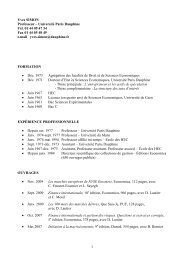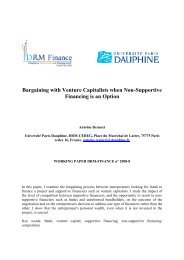Corporate governance and earnings management ... - CEREG
Corporate governance and earnings management ... - CEREG
Corporate governance and earnings management ... - CEREG
You also want an ePaper? Increase the reach of your titles
YUMPU automatically turns print PDFs into web optimized ePapers that Google loves.
In spite of the preventions of a large part of the major actors of the German doctrine such as<br />
Busse von Colbe (2001, p. 879) <strong>and</strong> Hommel, (2001, p. 1943), <strong>and</strong>, more largely the majority<br />
of the members of the Scientific Committee for Accounting (according to Siegel, 2002, p.<br />
749), the DSR, after an “animated debate”, published in 2002 the DSR1a (DSR, 2002)<br />
specifying that the new American doctrine on goodwill did not prevent the adoption of the<br />
FASB’s st<strong>and</strong>ards as a substitute for the GoB. Moreover it maintained the DSR4 in the same<br />
state as before. These decisions had the effect of a bomb in Germany. Very rare were the<br />
professors who as Zimmerman (2002) defended the position of the DSR. The most moderate<br />
of the commentators did not fail to underline the totally contradictory character of the two<br />
st<strong>and</strong>ards <strong>and</strong> the apparent illegality of the adopted American rule as referred to the texts of<br />
the seventh directive <strong>and</strong> the GoB (Krawitz cited in Siegel, 2002, p. 749; Duhr, 2003, p. 974).<br />
Busse von Colbe (2004), in a very clear synthesis, deals with the “application of American<br />
criteria from a German perspective”. Moxter (2001, p. 1) referring to Louis XIV ascertained<br />
that in violating the text of the European Directive (that provides for a systematic<br />
amortization) the DSR had acted according to its “bon plaisir”. The partisans of the traditional<br />
prudent approach denounced an “insane” way of capitalization which allowed for the<br />
registration of a part of the created goodwill (Siegel, 2002, p. 749) <strong>and</strong> opened the road for an<br />
“Enronisation” of the German accounting (Schildbach, 2005, p. 1). The only hope that<br />
remains for these numerous opponents was the possibility of a veto by the Ministry of Justice.<br />
Unfortunately for them the text of the DSR was ratified on the 6 of April 2002<br />
(Bundesanzeiger).<br />
It can be concluded that the case of goodwill has been played in very dramatic conditions in<br />
Germany. While the majority of the enterprises were preferring a weakened static solution the<br />
fringe of companies mostly vested in the globalisation, sustained by the Chamber of public<br />
accountants, a part of the doctrine <strong>and</strong> the new DSR, wished to align, for the sake of<br />
international credibility <strong>and</strong> financing problems, on the dynamic solutions proposed by the<br />
56


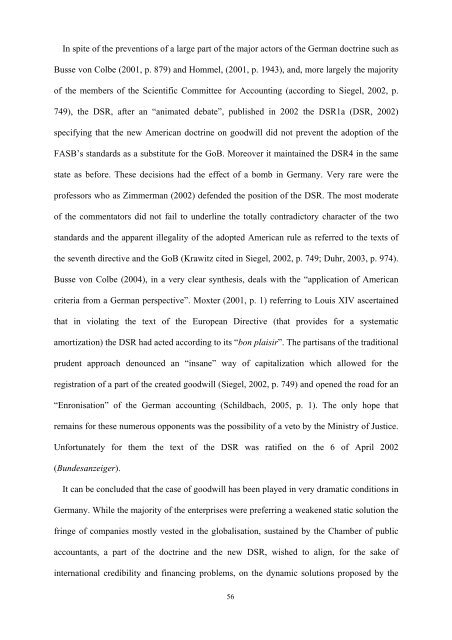
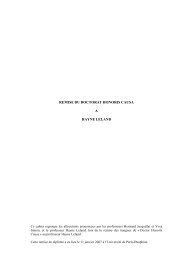
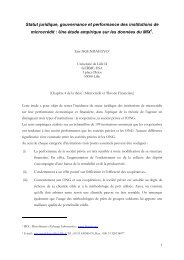
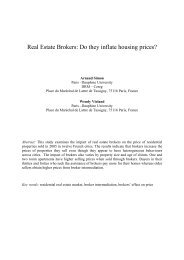
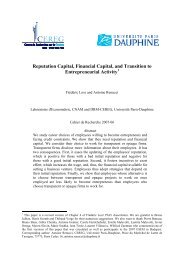
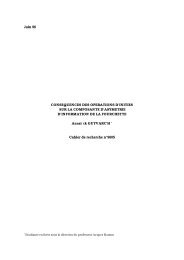
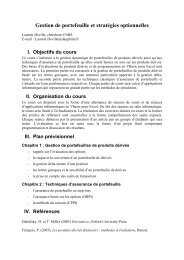
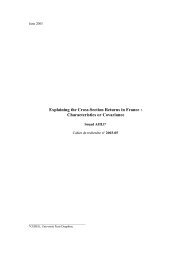
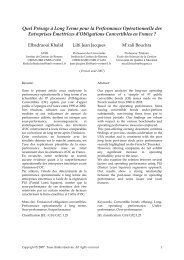
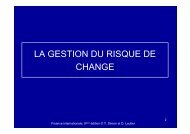
![& 6 ] ^ F ]^ - CEREG - Université Paris-Dauphine](https://img.yumpu.com/33326502/1/184x260/-6-f-cereg-universitac-paris-dauphine.jpg?quality=85)

